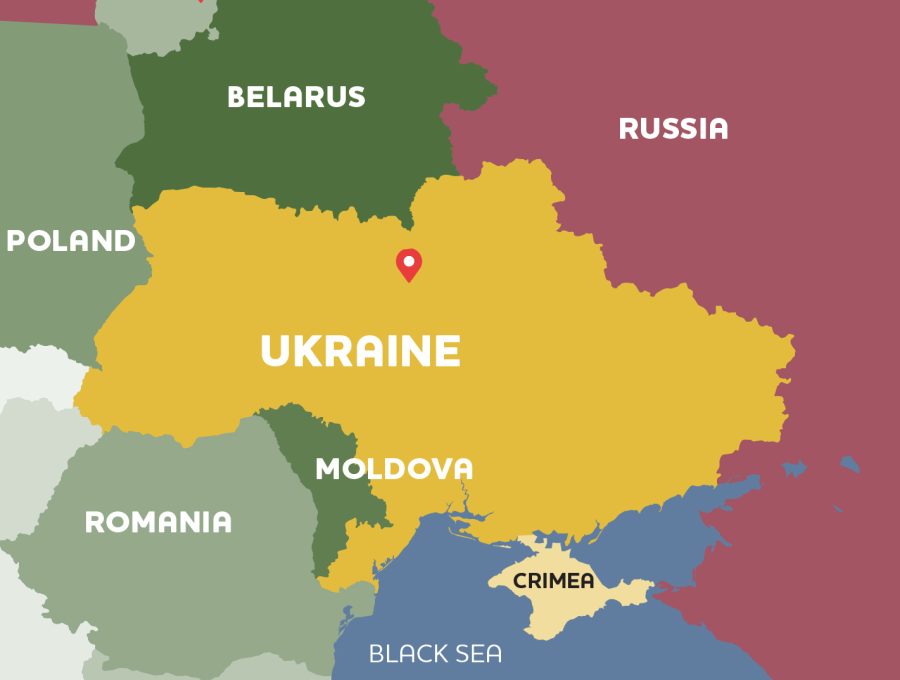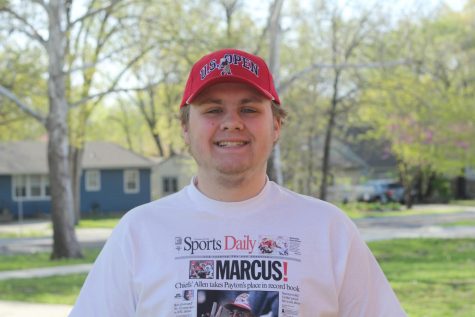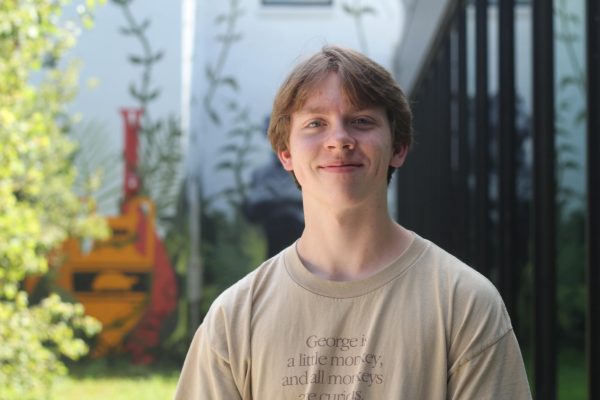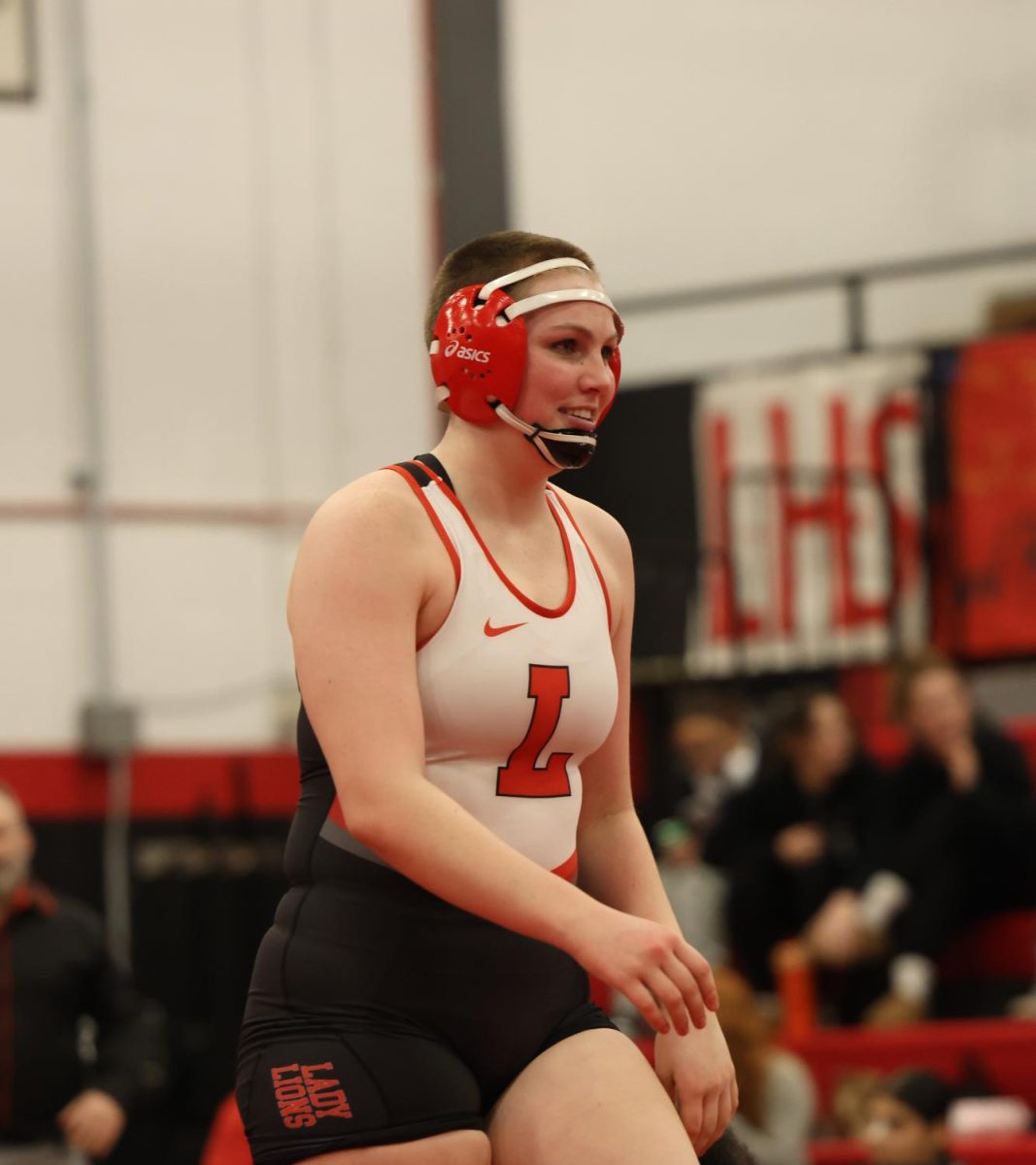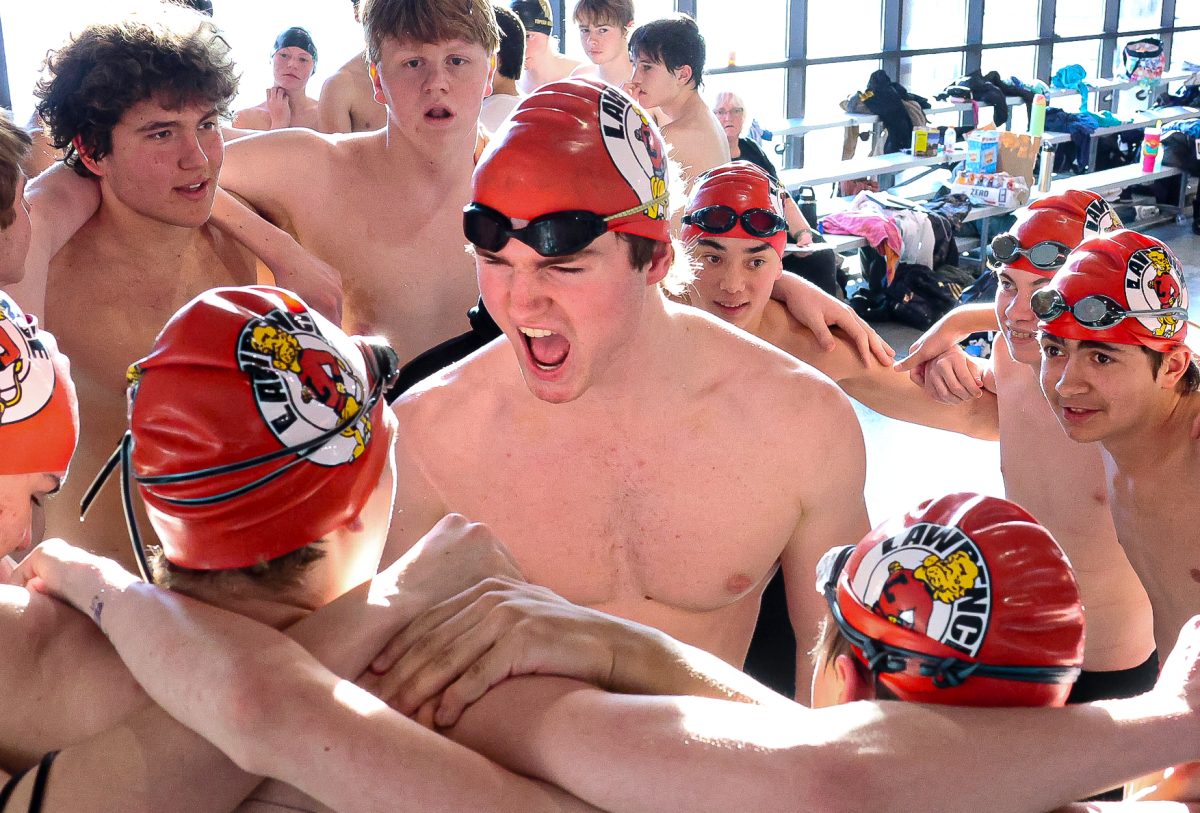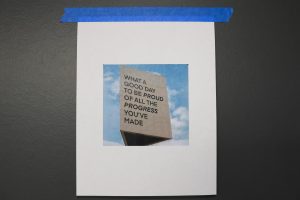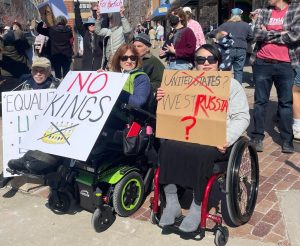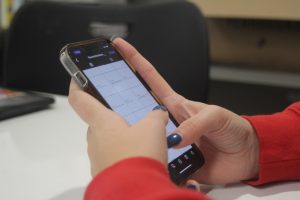Russia’s invasion of Ukraine sparks worry from LHS students, teachers
Students and teachers worry about impacts as Russia invades Ukraine, drawing global concern
February 24, 2022
Last night, as Lawrence High students and teachers got ready for bed, Russia began a full-scale invasion of Ukraine — a move unprecedented in the past 80 years of European history.
As European History teacher Tracy Murray fell asleep amid the attacks, she was in shock but not surprised.
“Just hearing that air raid siren, which is something that I [haven’t experienced], but I know what that is,” she said. “The situation is significant. It’s Ukraine. It’s Russia. But many things that have been bubbling under the surface…what will be revealed?”
During its tumultuous 30-year history, Ukraine has gradually aligned itself with the west and away from Russia. In 2014, Russia illegally annexed the Crimean peninsula in southern Ukraine. Since 2014, separatist forces have killed more than 14,000 in eastern regions of the country. On Monday, Russian President Vladimir Putin recognized these separatist cells, laying the foundations for the conflict in Kyiv today.
Just before the Ukrainian sunrise, people heard explosions throughout the nation. After a week of cyber-attacks, troop buildup and repositioning and cryptic statements from leaders, Russia launched its full-scale invasion by bombing numerous large cities in Ukraine, including the capital, Kyiv.
Russia continues the invasion in the area using numerous cyberattacks, air assaults and campaigns on land and sea. Points of contention include the control of the Kyiv airport and the nuclear facility at Chernobyl, the site of the most catastrophic nuclear accident in history.
As the Russian military squeezes Ukraine, Ukrainians have cried out for help or sought shelter. People from all over the nation have fled to the borders, seeking refuge in Poland and Romania.
For Polish foreign exchange student Mary Szydlo, the effects of the violence couldn’t be more concerning.
“It’s terrifying,” said Szydlo, who had been in contact with her family during the day. “No one actually thought this would happen. It’s really sad.”
For Poland, Ukraine’s western neighbor, the conflict means a humanitarian crisis of massive proportions.
“It is already affecting us,” Szydlo said. “People are scared that there won’t be enough gas so they are lining up at the gas stations, at the border people are storming through supermarkets to get food.”
Poland already has a sizeable Ukrainian population, and the relationship between the two countries is very close according to Szydlo. But within their borders, the number of Ukrainians will greatly increase in the coming weeks as millions of refugees attempt to flee their homeland.
“Poland is letting people come in without any restrictions,” Szydlo said. “Without Visas or Covid cards or anything. But for some of them, it’s impossible to get out.”
Many Europeans in the area feel helpless with Putin’s threat of “consequences greater than any you have faced in history” fueling fears.
“I don’t know what kind of help will come,” Szydlo said. “We can only hope for a solution with as few casualties as possible.”
Putin’s threat was part of a televised speech to the Russian people where he cited his reasons for the operation. “Russia cannot feel safe, develop and exist with a constant threat emanating from the territory of modern Ukraine,” he said. “All responsibility for bloodshed will be on the conscience of the ruling regime in Ukraine.”
Putin has cited the invasion as part of an effort to “denazify” Ukraine, a claim that experts say doesn’t reflect reality. The nation is currently led by a Jewish president, Volodymyr Zelensky, who lost family members in the Holocaust.
Putin’s interpretation of Ukrainian culture and history is highly flawed according to many historians and to people versed in European history, his conclusions are blatantly one-sided and biased.
“In a classroom, we talk about looking at all perspectives in totality. [Putin] is talking about one. One view,” Murray said. “It’s not completely falsified, there is truth in it, but it’s cherry-picked.”
To Russian-American student Annika Maximov, the cultures of Russia and Ukraine are extremely similar.
“In Ukraine, there is a large Russian culture and vice-versa. In many ways, their cultures are the same so it’s very sad to see this.” Maximov said. “It’s [Russian] culture fighting against itself in many ways.”
Though the conflict has massive cultural ramifications for eastern Europeans, the conflict itself is not directly influenced by cultural factors.
“It’s a continuation of a much bigger game by major powers,” Murray said. “I think Putin is using issues of culture to manipulate people’s perspectives.”
Though Putin’s falsified narrative of Ukraine has been spread by the Russian state, Russian citizens themselves are rising up against the war, with large groups in St. Petersburg and Moscow marching through the streets.
“Knowing that they are taking to the streets I think is very powerful but I also know that’s a horrifying situation for those citizens in Russia,” Murray said. “Putin has proven time and time again in his regime that revolution and dissident behavior is not acceptable.”
These themes of state-sponsored imperialism and suppression of revolution are relevant to many history class syllabuses including Murray’s. But she doesn’t plan to change the way she teaches related material and hopes that students will use the continuing narrative of the Ukraine-Russia conflict as a way to process topics they learn in classes.
“The context is the context,” she said. “I don’t think this will change the way we look at these topics in class but it will give additional insight to students on how they look at these topics. It’s one thing to say that history is predictable, but there are definitely patterns to be identified.”
Understanding history, Murray said, will help students identify those patterns.
“Looking at how we stop those patterns, patterns that lead to conflict and looking at what are the steps we can take moving forward,” Murray said. “I hope we can inspire students to focus on those patterns in the future.”
People all over the world, Americans included, will likely watch the economic effects with trepidation, as oil and gasoline prices are likely to change with sanctions applied by President Joe Biden. Murray and other historians hope that people will focus on more than just the financial implications of the situation.
“People’s eyes are going to be on the economy, they always are, it’s a common narrative,” Murray said. “What will be interesting to see transpire is how we will attribute that narrative.”
The overarching feeling by many keeping up on the issue is anxiety with a hint of deja vu. For some analysts, the events act as a prelude to a larger long-lasting discord in Europe.
Murray has had the opportunity to reflect on past events and their culmination today, but her fresh reaction is more telling.
“Oh boy, here we go,” she said.



